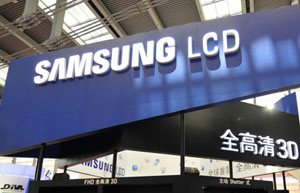Antitrust probes need to be more open
By Tao Jingzhou (China Daily) Updated: 2014-09-01 06:44Worse still, the commission's decisions themselves are seriously flawed. Since the country's antitrust law came into force in 2008 almost all the fines issued by the agency - mostly against foreign enterprises - have been based on resale pricing. But the decisions merely identified resale price-fixing without further justifying whether that would necessarily have the effect of restricting or eliminating competition.
Under national law and court opinions, minimum resale price-fixing is not unlawful per se, but, rather, must be judged under the rule of reason. Last year, the Shanghai Higher People's Court ruled for the first time in Johnson & Johnson versus Ruibang that, when analyzing the market effect on competition of minimum resale price agreements, various factors have to be considered and proved to the court's satisfaction.
These include the market power of the concerned parties, the degree of competition in the relevant market, the motives for restricting competition and its unfavorable impact on competition. The commission's decisions make no reference to these factors.
Curiously, none of the companies filed for either administrative reconsideration (an administrative recourse available to private entities against government action) or judicial review. In fact, all foreign companies, once singled out by the commission, have chosen to surrender even before an official investigation starts.
It is probably because a simple flexing by the commission of its muscles is dissuasive enough. Any defiance or resistance would do the companies no good, but being submissive will probably get them some lenient treatment. Pursuant to the commission's rules, it will give no or lesser punishment to those who cooperate.
Unlike the antitrust agencies in the US or the European Union, which are independent agencies established directly by the law to prevent anti-competitive business practices, the antitrust enforcement authorities in China (the Ministry of Commerce, the State Administration for Industry and Commerce and the NDRC) are all existing agencies empowered with other functions. Multinationals may feel that appealing the decisions could lead to administrative revenge.
In light of the above problems with China's law enforcement, justice needs to be done to create an open and transparent system, and more importantly, justice should be perceived to be done to create a level playing field.
Premier Li Keqiang has insisted on the continued opening up of the Chinese market and also on the fair treatment of foreign investors. But the NDRC's handling of antitrust cases and the actions of other government agencies against foreign investors cast strong doubt on whether the enforcement authorities have simply disregarded the premier's call by imposing selective enforcement on foreign interests.
Public opinion in Western countries is already unfriendly toward China. Western governments, especially the US, are also very suspicious about China. Foreign investors have been working to calm the friction between China and the West, and have urged their home countries to adopt more liberal and long-term views on China.
They have also called for more tolerance from Western governments toward China's handling of issues such as foreign exchange controls and intellectual property protection. However, selective enforcement against multinationals may well turn them from de facto lobbyists for China to advocates of a less-than-friendly attitude.
The author is managing partner with Dechert LLP China, a specialist law firm. The views do not necessarily reflect those of China Daily.
 |
 |
| Microsoft not transparent with sales information: regulator | Top 9 anti-trust cases in China |
- Chinese insurance firms fined $18m for price-fixing
- Liaoning sees 3.4% rise in trade
- Sinopec leads Top 500 Chinese Enterprises list
- Legend Holdings raises millions with partners
- FTZ's platform goes online
- Shanghai shares close at 15mth high
- Guangzhou firm forges Australian link for senior living venture
- China remains world's largest trademark holder

















